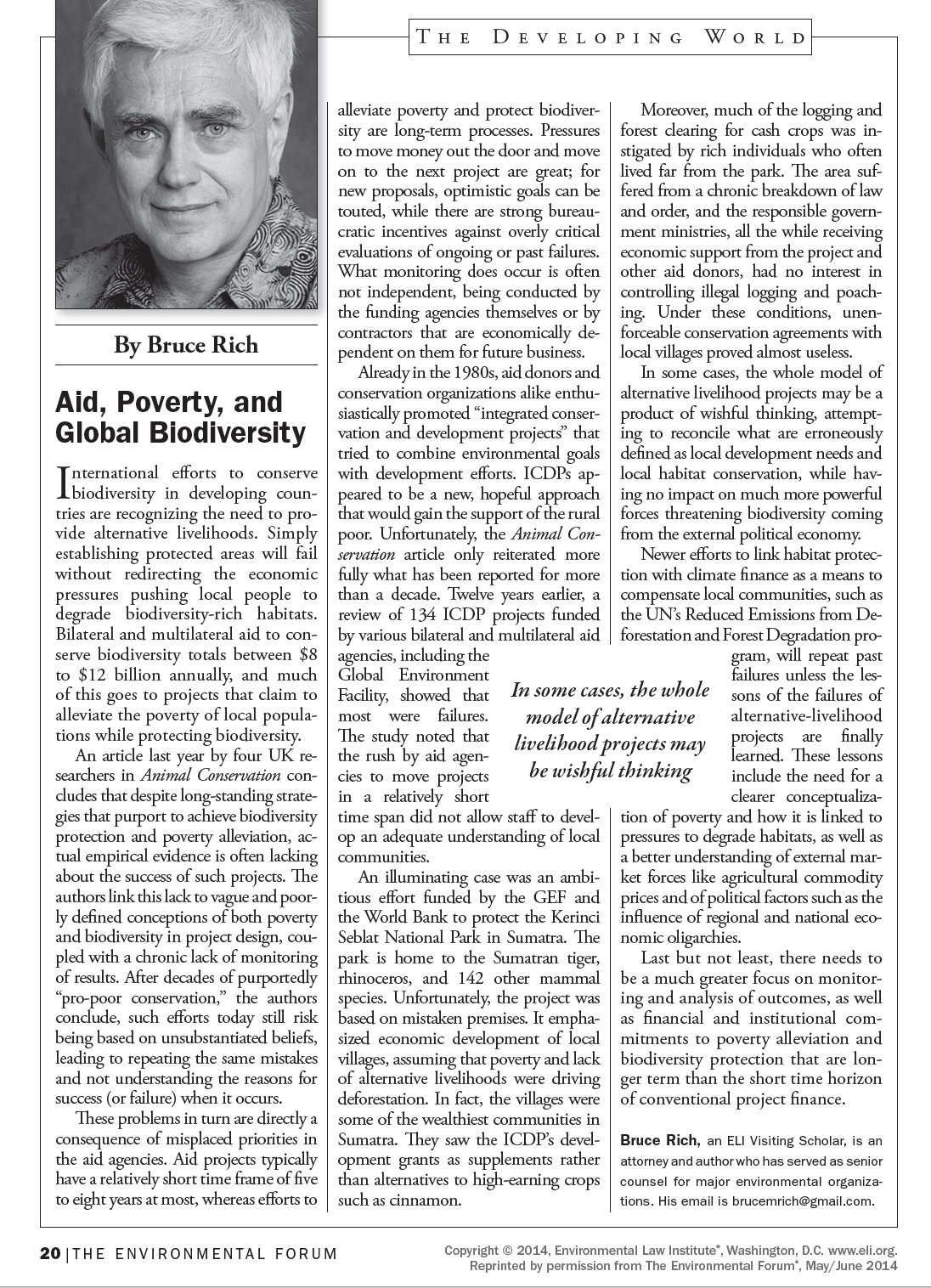- Bruce Rich
- Environmental Forum
- May-June 2014
- p. 20
An article by four UK researchers...concludes that despite long-standing strategies that purport to achieve biodiversity protection and poverty alleviation, actual empirical evidence is often lacking about the success of such projects. The authors link this lack to vague and poorly defined conceptions of both poverty and biodiversity in project design, coupled with a chronic lack of monitoring of results. After decades of purportedly “pro-poor conservation,” the authors conclude, such efforts today still risk being based on unsubstantiated beliefs, leading to repeating the same mistakes and not understanding the reasons for success (or failure) when it occurs....Pressures [at aid agencies] to move money out the door and move on to the next project are great; for new proposals, optimistic goals can be touted, while there are strong bureaucratic incentives against overly critical evaluations of ongoing or past failures.



